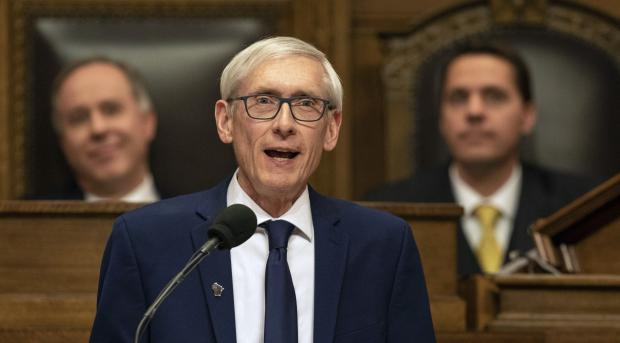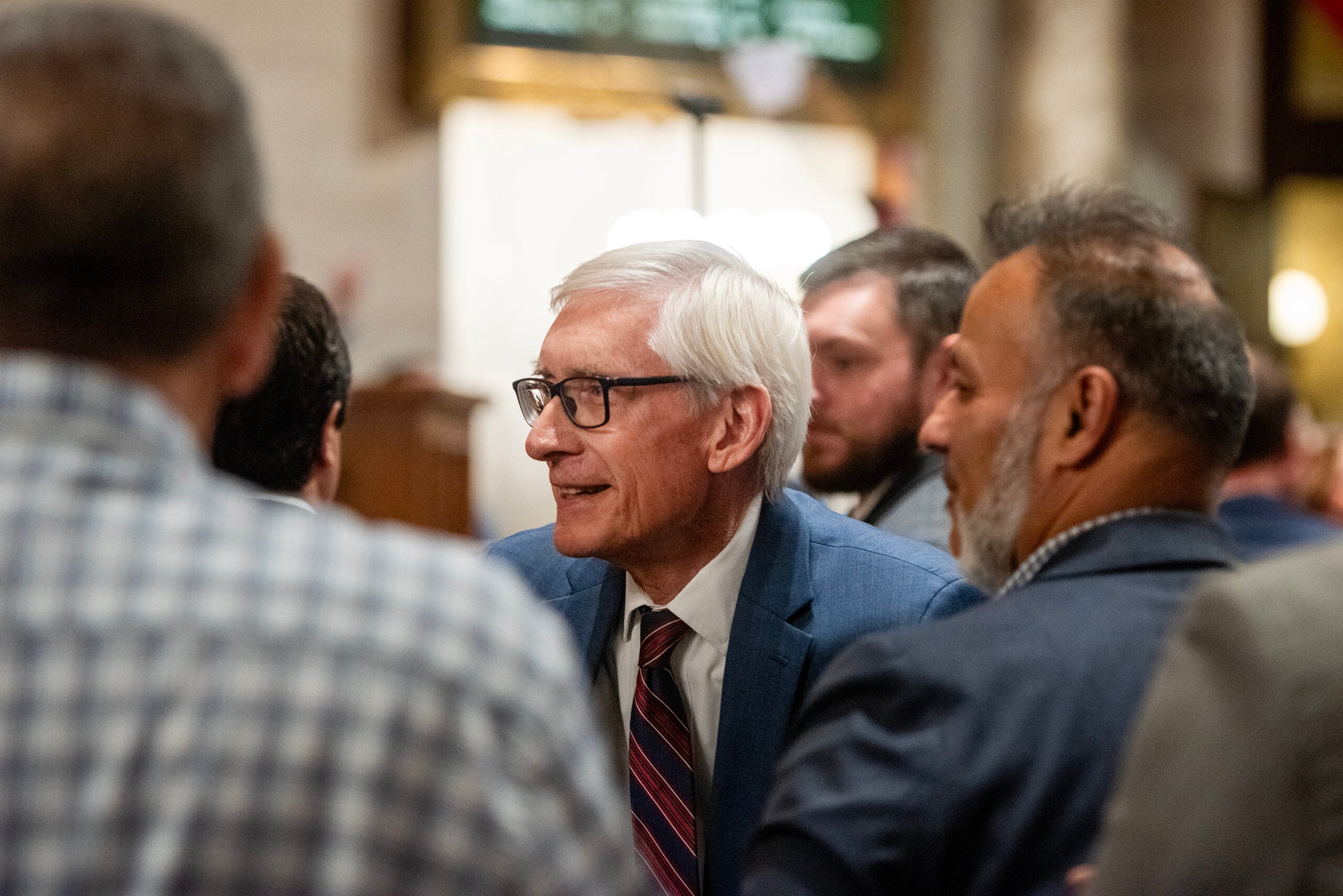Gov. Tony Evers said Tuesday it was Foxconn that first suggested making changes to its contract with the state of Wisconsin, not the other way around.
His comments in a letter to Foxconn Technology Group executive Louis Woo came a week after Evers told reporters he wanted to renegotiate the deal and that the company’s pledge to create 13,000 jobs was “unrealistic.”
In a letter to Woo that Evers’ office shared with reporters, the governor referenced a March meeting where the two sides met personally.
News with a little more humanity
WPR’s “Wisconsin Today” newsletter keeps you connected to the state you love without feeling overwhelmed. No paywall. No agenda. No corporate filter.
“At that meeting, you indicated that Foxconn intends to suggest several changes to the existing agreement to better align the terms with the evolving project and global marketplace. To my knowledge, this was the first time either Foxconn or the State of Wisconsin had mentioned amending or changing the agreement approved in 2017,” Evers wrote.
“I am also aware that you updated Assembly Speaker Robin Vos and Senate Majority Leader Scott Fitzgerald later that same day and outlined for them your intention to suggest changes to the agreement with the State of Wisconsin in 2019,” the governor continued.
Vos and Fitzgerald have been outspoken advocates for the Foxconn project and have criticized Evers’ handling of the company so far.
Fitzgerald issued a statement which disputed Evers’ description of the senator’s meeting with Woo.
“I met with Louis Woo for 30 minutes and there was no discussion about opening up the contract for renegotiation, just general discussion about Foxconn’s expansion and growth,” Fitzgerald said. “This contract is solid — if the job growth and investment doesn’t come, the state doesn’t pay.”
Vos spokeswoman Kit Beyer said in an email that the speaker receives regular updates from Foxconn.
“At the meeting in March, Speaker Vos expressed his willingness to provide flexibility to Foxconn to help the company reach its goal of 13,000 jobs with no additional taxpayer dollars and all the current taxpayer protections in place,” Beyer said.
In a written statement, Vos praised the current contract.
“In his recent comments, Gov. Evers seems to be playing to his liberal base and caring more about scoring political points than ensuring the success of the largest economic development project in state history,” Vos said.
Foxconn responded with a written statement late Tuesday that said it remained committed to working with the Evers administration within the existing contract.
“Foxconn has never wavered from our commitment to our contract with the State of Wisconsin and the creation of 13,000 jobs as part of our broader effort to make the Badger state a global technology hub,” the company said. “As part of our ongoing, long-term investment in Wisconsin, we have conducted both routine engagement and good faith discussions with the Evers Administration regarding areas of flexibility within the existing agreement to ensure the company and our workforce will be positioned for long-term success.”
Wisconsin’s current deal with Foxconn could pay the company more than $4 billion between state and local incentives if it hits a series of capital and job creation benchmarks.
It was negotiated by former Republican Gov. Scott Walker and the Wisconsin Economic Development Corp., the quasi-private economic development agency Walker created.
When it was signed in November 2017, the contract said the company would build a so-called “Gen. 10” liquid crystal display manufacturing plant near Mount Pleasant. Gen. 10 screens are among the largest, most technologically advanced in the world.
But in 2018, the company began to back-peddle from those plans when it couldn’t find a glass manufacturer willing to locate near its Wisconsin campus.
Earlier this year, Woo reportedly told Reuters that Foxconn had no future building televisions in the U.S., only to have the company reaffirm its plans to build in Wisconsin less than a week later.
Foxconn said most recently that its Wisconsin manufacturing plant would be operational by 2020, but its latest plans call for a “Gen 6” facility, meaning it would build smaller screens than the ones called for in the original contract.
Editor’s note: This story was updated at 7:30 a.m. Wednesday, April 24, 2019 to include a statement from Foxconn.
Wisconsin Public Radio, © Copyright 2026, Board of Regents of the University of Wisconsin System and Wisconsin Educational Communications Board.






